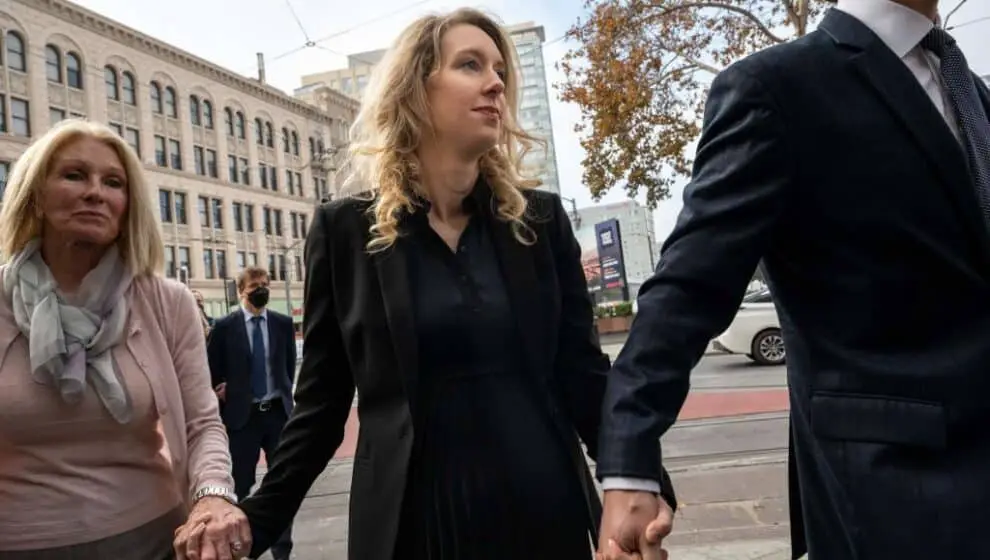Once touted as the world’s youngest self-made female billionaire, Elizabeth Holmes received her sentencing today following a January guilty verdict.
Key Details
- Following a guilty verdict in January this year, Holmes received an 11-year sentence on Friday.
- Holmes has 14 days to appeal the verdict. Her lawyers will likely make an appeal as they make another bid for no prison time.
- Holmes had attempted to receive a sentence of home confinement and community service.
- Her lawyers cited Holmes’ current pregnancy and the need to care for a young child at home as the reason for a reduced sentence.
- On Friday, the judge found that Holmes had defrauded 10 total investors for a total amount of $121.1 million.
Why it’s news
In 2014, a 30-year-old Elizabeth Holmes had a $9-billion company with a billion dollar promise—that her product could diagnose dozens of diseases with a single drop of blood.
Holmes’ company Theranos was valued at around $9 billion in 2014. The company’s board had major players such as Henry Kissigner and James Mattis. Just a year later, in a report by the Wall Street Journal, the company began to fall apart as it was revealed that Holmes was not what she said she was.
The miracle, too-good-to-be-true technology was just that—too good to be true. By 2018, Theranos shuttered its doors and Holmes stepped down as CEO.
In 2018, the Securities and Exchange Commission (SEC) charged Holmes and former COO Sunny Sunny Balwani with fraud. In June of that same year, Holmes and Balwani were indicted with nine counts of wire fraud and two counts of conspiracy to commit wire fraud.
In January of this year, Holmes was convicted of four counts of fraud.
On Friday, Holmes was sentenced to more than 11 years in prison. Holmes has 14 days to appeal her conviction—a move which is expected.
Theranos and Holmes serve as a cautionary tale for investors. Holmes’ company was considered a story stock—a company whose value is based on an idea rather than the results. In some instances, these ideas have massive returns—such as Tesla and Amazon. But more often than not, the story stock ends with companies like Theranos.
When making investments, research and due diligence is paramount. Investors trusted Holmes’ charismatic personality and passionate ideas rather than what she could put down on paper.
During Holmes’ trial, due diligence played a key role as lawyers asked whether or not Holmes truly defrauded investors or if investors simply didn’t do enough research.
Backing up a bit
Holmes originally planned to study medicine at Stanford University when she attended in 2002. However, a fear of blood and needles quickly changed her mind. Inspired by her own apprehensions, Holmes set out to find a less invasive way to practice medicine.
A short while later, Holmes decided to fully commit to her vision, dropped out of Stanford, and started Theranos from her basement.
While searching for investors, Holmes confirmed that the technology she had was functional and could detect ailments like cancer using just a drop of blood. She also convinced investors that her device could run over 200 diagnostic tests.
By convincing investors that secrecy was paramount, Holmes was able to secure more than $700 million in investments without ever revealing how her technology worked. The blood testing machine known as Edison gained Holmes access to millions of dollars in funding as well as partnerships with healthcare brands like Walgreens.
The illusion came crashing down in 2015 when the FDA began investigating Holmes’ company after noticing discrepancies and inaccuracies in the testing. The Wall Street Journal revealed a short while later that the Edison machine didn’t work and Theranos was running tests with traditional blood testing machines.
Theranos was later found to be out of compliance with safety standards set by the FDA, SEC, and Centers for Medicare & Medicaid Services.

